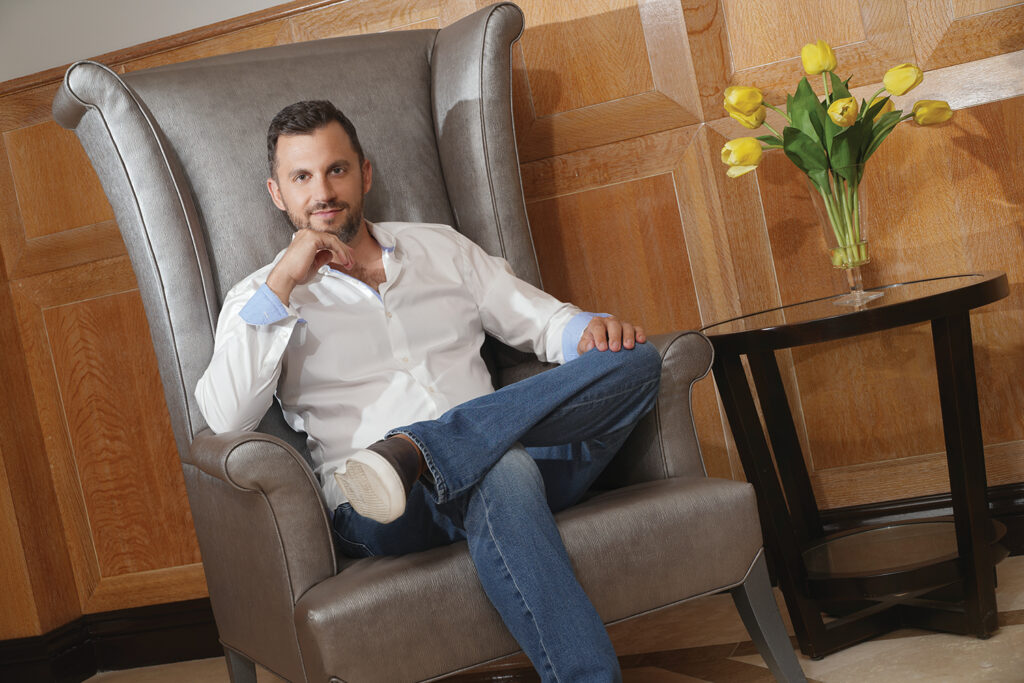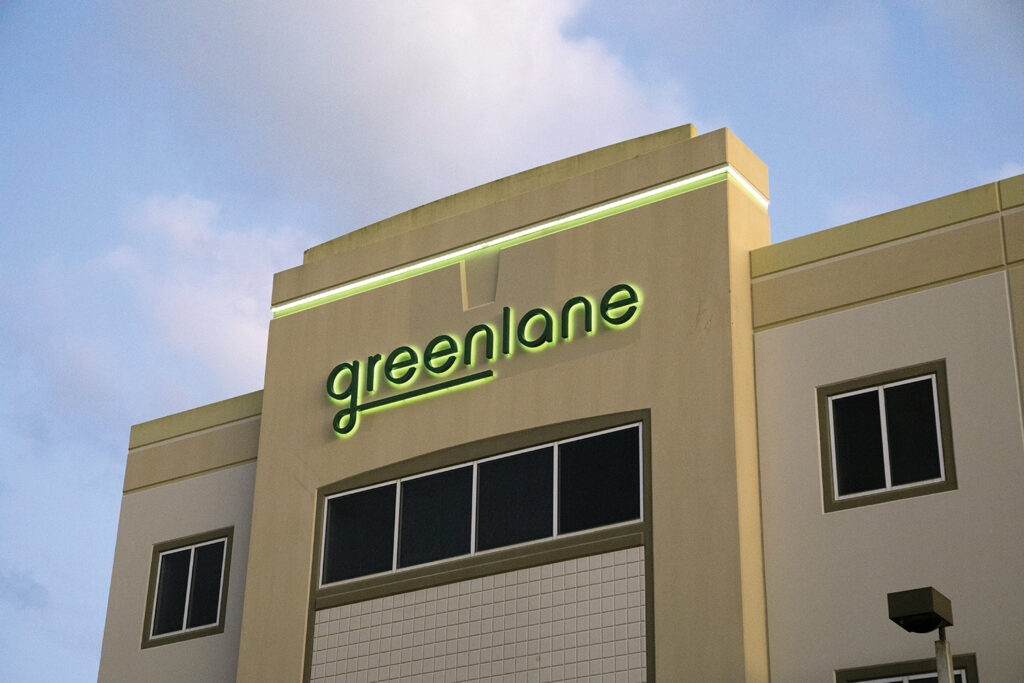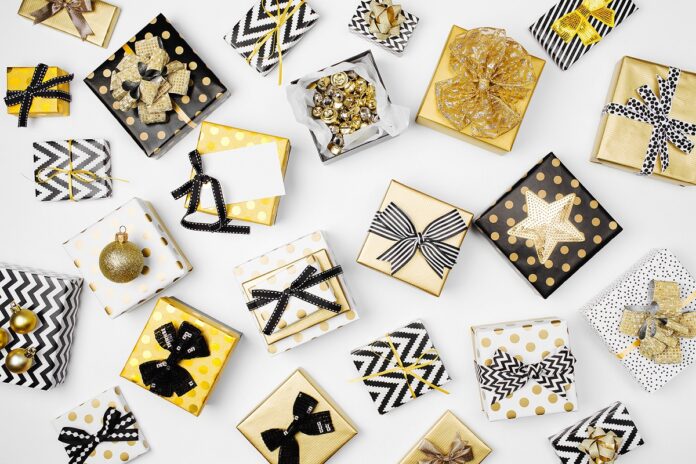Of all the cogs in the cannabis industry’s supply chain, distribution companies might be the most contentious and competitive, charging a toll to every producer that needs to move its product from point A to point B with much grumbling about the fees along the way. But there is another distribution channel that doesn’t touch the plant, and that’s where Aaron LoCascio and his Greenlane Holdings Inc. are winning the game.
When Greenlane went public on the Nasdaq in 2019 (GNLN), it was the first cannabis-related company to list on a United States exchange. Not bad for a first-time entrepreneur who founded the company at age 20 while working at a car wash in Florida. At the time, LoCascio only dreamed his fledgling business would become one of the largest distribution companies in the U.S. cannabis industry, with sales doubling year after year. Every time a cannabis consumer goes into a corner store, headshop, or dispensary looking for rolling papers or a vaping device, it’s a good bet Greenlane has a piece of the action.
“I’ve seen everything and the challenges that people experience,” LoCascio said, laughing. “Being involved in the cannabis industry, there are challenges that you would never in a million years expect if you were a consummate professional with a long career in business with lots of big companies. If you come into the cannabis space, you have challenges that you couldn’t imagine in a million years.”
Arnold Palmer
It all started with Arnold Palmer. Not the golfer—the drink.
Although Greenlane was his first formal entrepreneurial endeavor, LoCascio began his business journey at an early age. As a child, he set up a lemonade stand in front of his parents’ house and tweaked the business model until he had thirsty Floridians right where he wanted them.
“I saw more opportunity and decided I needed to do more than just lemonade,” he said. “I was getting requests for iced tea, so then I realized I could up-charge by selling an Arnold Palmer.” (An Arnold Palmer combines lemonade and iced tea.)
When business wasn’t as brisk as expected, he realized he needed a better location. “I had to go to where all the traffic was, so I set everything up in a little wheelbarrow and I pulled it out to the front entrance of the neighborhoods nearby, and then sales started booming,” he said. “So, I kind of always had a knack for that entrepreneurial spirit, if you will.”
Flash forward a decade or so, and LoCascio was a student at the University of Central Florida. During a trip to California, he stumbled upon the Volcano, one of the first vaporization devices to make a splash. “I brought it back to Florida and got together with friends and tried vaporization for the first time, and it was incredible,” he recalled. “We couldn’t believe it. ‘Look, there’s no smoke!’ It was just a really remarkable technology in our eyes, and I was really enthralled by it.”
Maxing out his credit card to its $3,900 limit, LoCascio bought as many Volcanoes as he could get his hands on, then sold them at a profit of $100 each. Then he began looking around for other cannabis and smoke products to sell. He quickly homed in on the first generation of vaporization devices and set his sights on becoming a major online retailer.
“Keep in mind this was the early 2000s, when online shopping wasn’t really a big thing yet,” he said. “The internet back then was the bargain place to buy anything because people were still learning to trust the platform, so it was a very bizarre thing for me to see. A lightbulb went off in my head and the entrepreneur in me saw an opportunity, and my business thesis was to be the Walmart of the internet.”
Before long he was selling not only vaporizers, but also home audio equipment, small kitchen appliances, and anything else he could find where there was a sizable margin to be made. “It really continued to grow in popularity as the awareness of the products continued to grow, and I saw that as my calling,” he said. “By 2008, I dropped everything else and focused exclusively on the vaporization products.”

Managing growth
Until 2008 Greenlane was e-commerce only, but that year LoCascio realized he needed to expand the business into new product categories and focus on distribution to smoke shops in Florida and beyond. It wasn’t long before his distribution business went nationwide. Today, Greenlane serves more than 11,000 national retail partners in the U.S. The company also has exclusive deals with dozens of leading companies on the accessories side of the industry and carries a dizzying number and variety of devices, some of them created by in-house brands that supply the growing CBD and liquid nicotine markets.
“In the past five years, we’ve grown quite tremendously,” said LoCascio. “We’re now a public company, so that obviously brought a lot of change to our systems, processes, and people. We had to evaluate and upgrade everything. So, that puts a lot of pressure on us, and that’s where I would say Greenlane as an organization has had the most change taking place overall.”
As his company grew and expanded its footprint across the U.S. and beyond, LoCascio said the most significant jumps in business volume occurred after Nevada legalized and began selling cannabis to visiting tourists from around the world. And when Canada legalized, “that was phenomenal—huge, huge, huge,” he said. Now the company employs 250 people at headquarters and in offices in Hermosa Beach and Torrance, California; Amsterdam; Toronto; and France.
With its extensive inventory, Greenlane can tap into the consumer base of three different multibillion-dollar industries: the $150-billion cannabis industry, the $22-billion CBD industry, and the $7-billion U.S. nicotine industry.
Greenlane’s success was built primarily through online sales and distribution to smoke shops and corner stores, but recently the company has seen tremendous growth in distribution directly to dispensaries. With expansion of medical legalization into new states and recreational markets exploding, dispensaries are sprouting in small towns, big cities, and everywhere in between.
“We are generally seeing a lot of positive momentum across the board, and anytime a new state legalizes or passes new laws in a positive direction, it’s generally good overall for our business,” LoCascio said. “Our business continues to grow pretty evenly across individual state geographies, where we see some subtle differences at times, and anytime there’s negative regulations or taxation that occurs, that can have a negative downward effect.”
LoCascio sees room for growth in the growing supply and packaging channel, which serves licensed cultivators, processors, and extractors. In order to create a presence in this market, in 2019 Greenlane acquired Pollen Gear, one of the biggest child-resistant packaging companies in the U.S. Greenlane also sells clothing and supplies cultivators and extractors with empty vape cartridges so they can build products and sell to dispensaries directly. He sees an enormous opportunity for the company’s core consumer packaged goods (CPG) to be sold more widely in dispensaries, but challenges exist, too.
“It’s been a challenging exercise in getting the dispensaries to carry an assortment of CPG products, because they’re so dedicated and so focused on selling cannabis,” he said. “When we’re talking to dispensary owners, they’re really just so deep and in the weeds and focused on their cannabis business and cannabis sales, so they don’t have the time or attention span for us walking them through our catalog of products.”
To help dispensaries get more CPG into their stores, Greenlane offers a retail merchandising program under which the company installs product racks and shelves in a specified footprint. By using product sales data, Greenlane takes the guesswork out of stocking for store owners who are unsure what products to order. Early data suggests some stores can increase their revenues by as much as 25 percent, LoCascio said.
“It’s very early innings in that program, but we’ve had some great early success,” he said. “And while we do believe the traditional smoke shop is not likely to go anywhere, we also believe that over time more and more cannabis products will be sold in dispensaries because it’s just a logical place.”
Branding opportunities
Working with numerous products and brands over the past fifteen years has put Greenlane in a unique position to offer feedback about new products and prototypes that could give companies a significant leg up on the competition. Likewise, Greenlane is able to analyze and capitalize on many years’ worth of consumer sales data to determine where gaps and opportunities in the marketplace may lie; in some cases, the company develops its own in-house brands to sell into those channels.
Greenlane also consults with brands to help fine-tune products for a fickle consumer demographic that is only beginning to form allegiances. Such was the case with the Marley Natural and KeithHaring accessory lines, Aerospaced and Groove grinders, and Higher Standards, an upscale product line with retail stores at New York City’s Chelsea Market and Atlanta’s Ponce City Market.
Among the projects LoCascio found most fascinating was a partnership deal with Vibes, a premium rolling papers brand LoCascio created and launched with Cookies’ impresario Berner in 2019. “Berner is an incredible entrepreneur who is influential and has been quite successful, and his products are amazing,” LoCascio said. “There was a lot of know-how in terms of how to actually execute on building the supply chain and infrastructure around developing our own rolling paper. So, it was a natural partnership for us to want to be together and take the things we’re really great at and the things he’s done. Coupled with our execution abilities, it has been a great partnership thus far and I really look forward to continuing to build on other opportunities with Berner in the future.”
While rolling papers may appear to be a simple, straightforward product, quite the opposite is true, according to LoCascio. Only two factories in the world make the raw materials Vibes requires, and both have been in business for hundreds of years. To strike a deal with these companies is no easy matter because they have long-standing relationships with other popular brands and “they don’t like to shake things up too often,” he said.
As he looks ahead for new opportunities and product developments in the market, LoCascio has fifteen years of experience, data, and gut instincts working for him. “One of the things we’ve gotten incredibly good at is spotting trends in the marketplace and new opportunities, and I’ve seen some really positive and explosive trends,” he said. “It’s really what I would say is the big reason for how we’ve gotten to where we are today. We have global data to tell us trends everywhere, even in places where cannabis is not yet legalized. That’s a phenomenal tool to help us make strategic decisions and merchandising and just overall resource allocation.”
Over the next few years, he projects do-it-yourself culinary products like the MagicalButter Machine will become more popular, given consumers’ increasing interest in and infatuation with edibles. He also has noticed an uptick in cones for joint rollers who don’t like the rolling part.

Future plans
In addition to new market sectors, LoCascio has expanded his company through acquisitions and expansion to countries outside the U.S. In 2019, Greenlane acquired Conscious Wholesale, a leading European wholesaler and retailer of consumption accessories, vaporizers, and other products.
“That particular acquisition is very, very focused on not just the opportunity in North America, but on the opportunity globally and Europe as the next logical place for us to really make our mark,” he said. “It’s still very, very early over there, but a key driving focus going forward is building on our Greenlane house of brands and leveraging the data we have to find opportunities in the marketplace and fill those gaps with our brands on a global basis.”
LoCascio said he is keenly focused on technology and digital platforms moving forward and the pandemic has made that even more of a priority, for Greenlane and the entire cannabis industry. “I think COVID-19 has really driven a lot of people to rethink their business priorities and needs and makes us realize just how important digital is going forward,” he said. “For us those are key focuses, to continue to build on our digital footprint and leverage our existing footprint to launch house brands.”
Among his goals is for Greenlane to become a one-stop, soup-to-nuts distribution company that can handle everything a cannabis producer needs after growing or extracting raw products. “We really envision an environment where we’re not just involved with buying and then reselling cannabis in a pure distribution situation, but really being a full-scale solution for enterprise-level cannabis customers, where all they have to do is grow the cannabis and we will bottle it, package it, fill it, and then distribute it,” he said.
Another major factor in Greenlane’s success, of course, is the widespread acceptance of cannabis by more patients, doctors, and mainstream consumers who use it recreationally. As a byproduct, LoCascio said he is dealing with more sophisticated customers and more sophisticated vendors, “which is great to see and is a necessary step and just the evolutionary change that is this industry.
“There’s more social acceptance to what’s happening, and prohibition is coming to an end, and the process is going to take time,” he said. “When states really started legalizing, that was a big tipping point for this industry. In some of the most recent polls we see how the population of the United States really feels about legalizing cannabis. It’s quite remarkable how far we’ve come in just ten years.”











